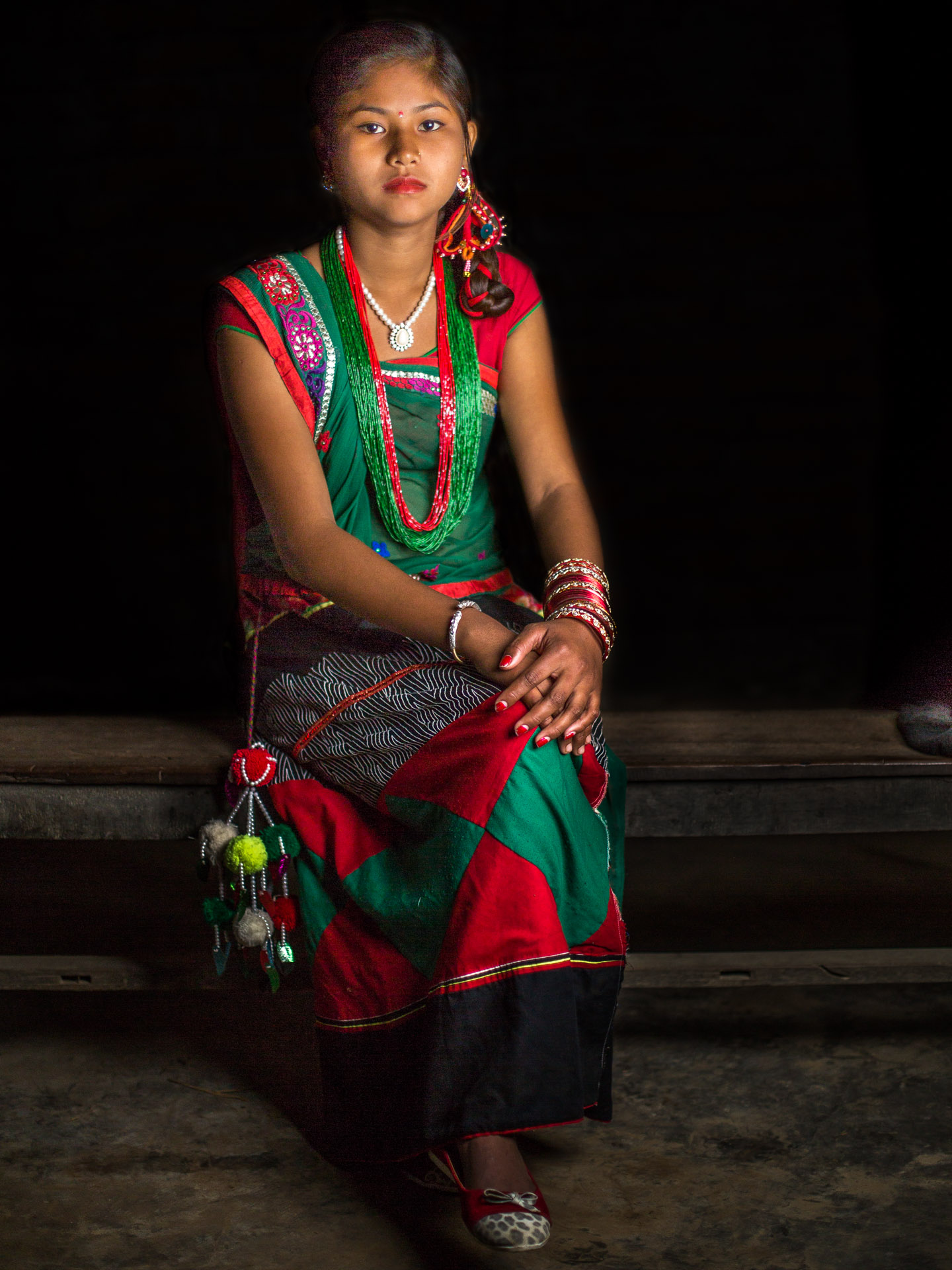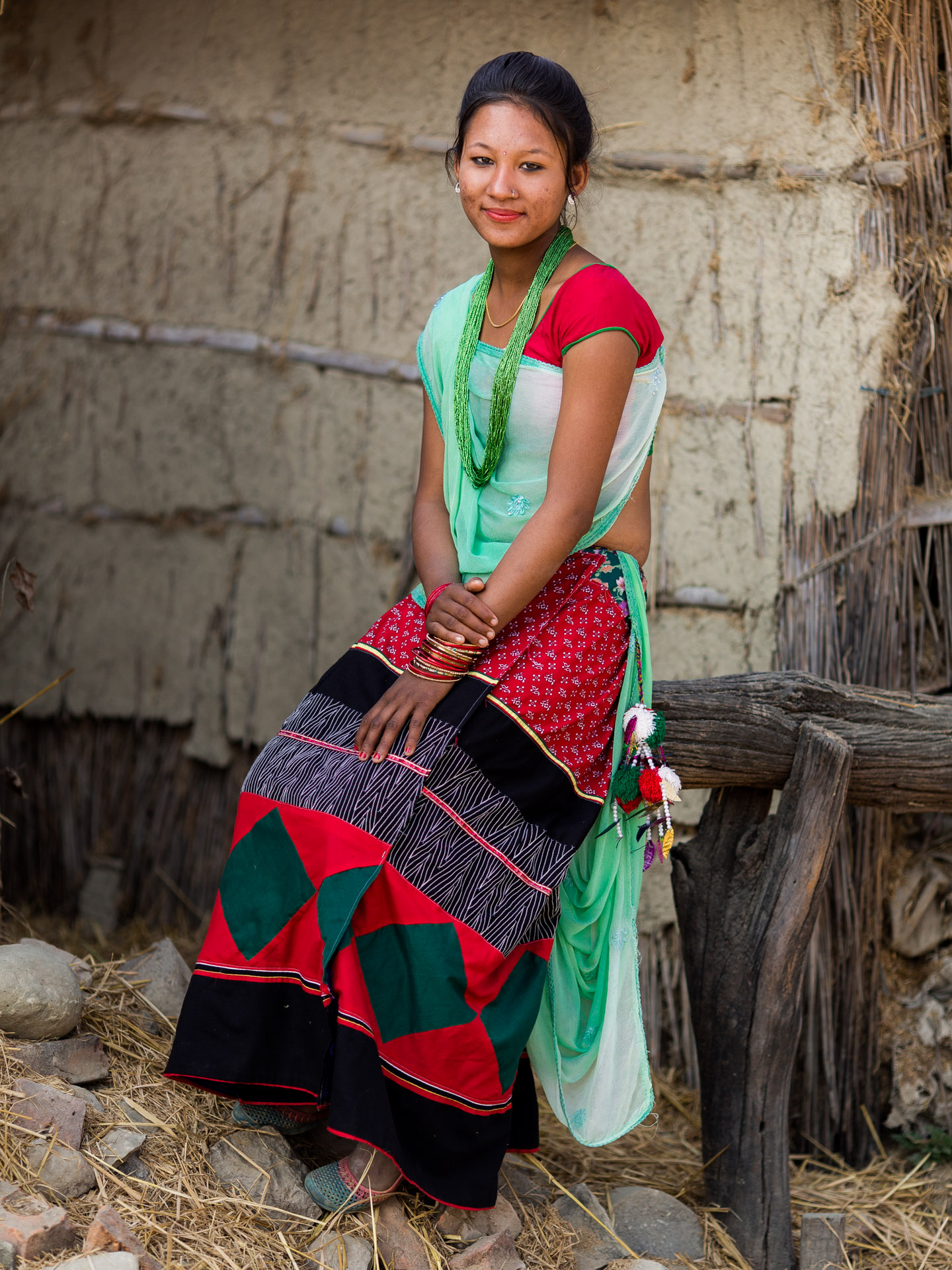INTERVIEW WITH YOUNG DANGURA THARU GIRLS IN CHAUDHARI REGION
“We are known for our strong community”
During our visit in Chaudhari region in the far west of Nepal, we interviewed three young Dangura Tharu girls. Manisa, Nisha and Kushuma told us about their cultural background and believes. The heritage of Dangura Tharu people lies in inner Terai, in Dang Deukhuri district. This is why they are called Dangura Tharu. Even though their main community still lives in this area, these days Dangura Tharu are also to be found in other regions in the Central and (Far) West of Nepal.
“When it comes to our cultural heritage you should know about our most important celebration: New year, Maghi*. This festival is also known in other Tharu communities, but it is very important to us that we celebrate according to our own costumes. During Maghi we will start our day with a thorough wash, for this will cleanse us from any deceases we might have. And we always celebrate our new year with a relaxed body and mind. This means we aren’t working and the first three days of our new year will be only about singing, dancing and eating our traditional foods made from rice flour. As we believe that when we start our new year with nice and cheerful activities, there lies a nice and cheerful year ahead of us. Just like we do in any other important occasion, the celebration starts in the house of our Badghar**. From there we dance and sing from door to door for the following three days.”
“You should also know that we are known for our strong community. I will give you an example: whenever something big happens, like a marriage or even a death, our entire community will gather to see how we can help out. This means every family will be there to contribute to some of the necessary tasks. Together we decide who is responsible for inviting the guests and who will cook our festive meals. Others will be divided the tasks of doing the dishes or taking care of decoration. If a family fails to support in such an important occasion they will be charged a 200 rupees*** fine.”
“Not only do we share and take care of the necessary tasks together when it comes festivities, we also share and exchange the children of our families. While in the early days marriages were arranged whenever a child was still in it’s mothers womb, these days things work a little differently. Mostly our marriages are still arranged, but some children are asked for their opinion in the matter. Though whenever our brother marries a girl from a certain family, we are obliged to marry a brother of our brothers wife. After our wedding we will move into the family house of our husbands and the wife of our brother moves into ours.”
* Maghi is celebrated in the first day of the month of Magh, which is mid January in the Gregorian calendar.
** Badghar is the elected village chief and responsible for all decision making in case of any type of problem. He is chosen for his nice, good and social character and not aloud to drink or to do anything else that can bring damage to the community.
*** 200 rupees is about 1,65 euro.
Previous text:
We talked with Manisa, Nisha and Kushum Chaudhary about their Dangura Tharu culture and community. They live in Danghadi goun (village). As the local people explained Dangura Tharu people are originaly from migrated from the Dang district in Nepal. Because of this they are called Dangura Tharu. Their main community is still in Dang but ones they spread out over other area's in Central and (Far) West-Nepal. They live in the Tarai and inner Tarai, the part of Nepal that consists of planes, forests and mainly farming fields.
Kamaiya are also from this same community. Before 2007 they were used as slaves for rich people, mostly higher casts. Still the Kamaiya people where uneducated so live from labour work that consisted of the most physical and they didn't got any salary as they where slaves. At this time they mostly live still in separate villages that are called 'Siver', the land that is given by the government after they recently got liberated as slaves.
The three girls are studying in class 9 at the Shree Danghadi Higher Secondary School. During our interview they described that Magi is their most important festival. They visit the houses from from their villages from door to door and sings and dance for three days. They are proud to be from the Tharu community and feel happy to show their cultural dressing for our portraits.






